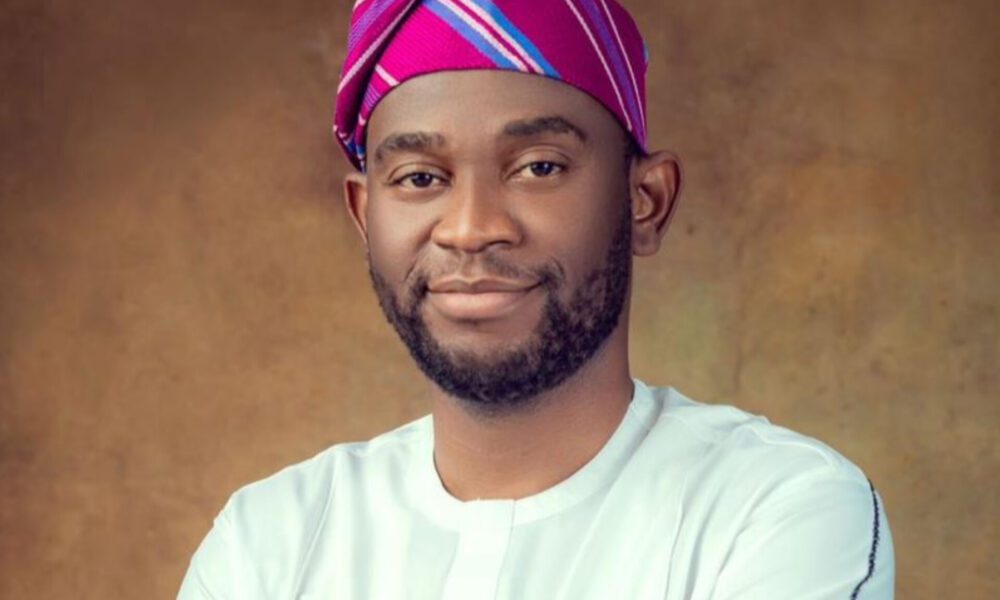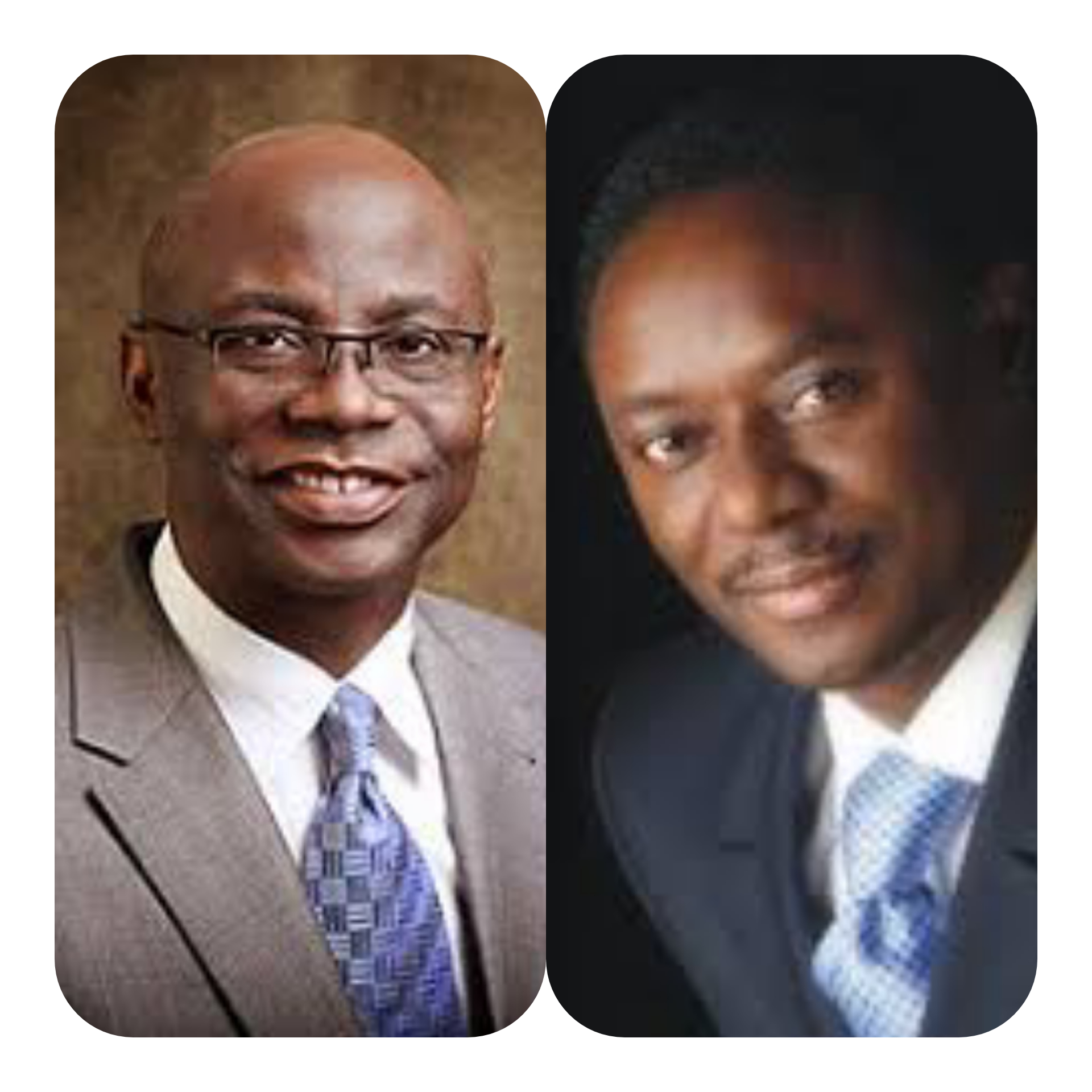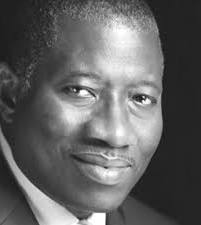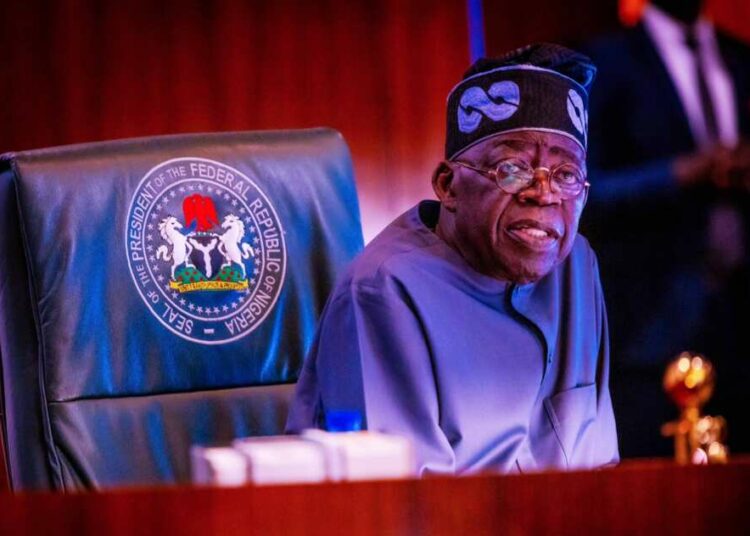By David Osadolor
As we deal with the multiplex of our minds and call to heart the things that should be in the most definite ways, it is indeed beyond the questions of hope and endeavors. People are losing faith in the country and their attitudes are showing that. When an institution can no longer provide the basic things needed by its citizens, people lose faith. It is therefore okay in an absolute manner to understand that when dealing with our temperamental stars, habits, and attitudinal behavioral conducts would always hold the pillars of societal balance in relative terms. People are battered, tattered, and torn, both from dealings within their societal circles and the cycle of the national polity, and there is just no way to keep the magic light and lead the way if the habits formed from the system are not reformed to lead a successful life.
Beyond this, at the other side of this long table will be questions; aching hearts and searching eyes, and the solemn ideas of what exactly they are trying to be or where they can get to lead a better life. Amid these pains are people; hearts, and heads, and the numbers are constantly increasing as more questions are popping up from the distant shadows like silhouettes coming to life face to face with the cold realities of the entirely aching nation with no one willing to pick up the pieces. So here are the biggest catches; beyond the questions are questioners – people who have come along with a cumulative experience, adversity from childhood or something picked at adulthood. Most times, these people are often with value-laden and hurt-laden struggles which have shaped their current habits and the necessities of letting go are not so visible. This is the system. This has nothing to do with motivation or willpower, but the loss of faith in the institution and the necessity to find a better place to live and thrive.
Nigeria, Africa’s most populous nation and one of the continent’s largest economies, is often lauded for its abundant natural resources and rich cultural heritage. However, beneath this veneer lies a deeply troubling phenomenon – brain drain. The term “brain drain” refers to the emigration of highly skilled and educated individuals from one country to another in search of better opportunities. In Nigeria, this trend has reached alarming proportions, with thousands of professionals, particularly in the medical, academic, and technological sectors, leaving the country annually. This exodus has far-reaching consequences, not only for Nigeria’s economic development but also for its social stability and future growth prospects.
Let us remember therefore that in the past, our ancestors were forcibly taken to foreign lands in vast numbers, leaving behind only a few men, women, and children. This mass displacement, known as the trans-Atlantic slave trade, devastated our communities and stalled development, leaving our land barren. Many African scholars, such as Walter Rodney in his seminal work ‘How Europe Underdeveloped Africa’ (1972), argue that the slave trade significantly hindered the development of the continent, which was rich in both human and natural resources.
Unlike the forced migration of the past, this modern exodus is voluntary, driven by the search for better opportunities outside the shore of Nigeria. This migration manifests in two primary ways. First, there is the Brain Drain, where educated Nigerians leave the country to practice their skills elsewhere due to the lack of favourable conditions at home. Second, there is the broader migration of individuals seeking greener pastures, even when they may not have significant contributions to offer in their destination countries.
The lack of opportunities for many talented Nigerians has led to a significant diaspora across Europe and America. The country’s failure to provide an environment where its citizens can fully realise their potential has exacerbated the challenges of brain drain and migration, contributing to Nigeria’s ongoing development struggles. Our universities have suffered from poor government policies, leading to a decline in quality and prestige. Studying abroad, even in neighbouring countries like Ghana and Benin Republic, has become a status symbol. In the medical field, a significant number of Nigerian doctors and nurses now practice in the United Kingdom, while our political leaders, unable or unwilling to fix the healthcare system at home, seek medical treatment abroad.
As the country struggles to address its myriad challenges, the loss of its brightest minds creates a conundrum – a complex and persistent problem that seems almost impossible to solve.
The Root Causes of Brain Drain in Nigeria
One of the primary drivers of brain drain in Nigeria is the country’s deteriorating economic conditions. Despite being one of the largest oil producers in the world, Nigeria has been unable to translate its natural wealth into broad-based prosperity. High unemployment rates, inflation, and a volatile currency have created an environment where many professionals see no viable future for themselves and their families. For instance, a 2020 report by the World Bank indicated that nearly 40 per cent of Nigeria’s population lived below the poverty line, and this figure has likely worsened due to the impact of the COVID-19 pandemic. In such an environment, the allure of higher-paying jobs, better living conditions, and more stable economies abroad is irresistible.
A second major cause of brain drain is the inadequate state of infrastructure and public services in Nigeria. Healthcare, education, and power supply are critical sectors that have suffered from years of neglect, under-funding, and corruption. The healthcare sector, for example, is in a state of crisis, with many hospitals lacking basic equipment and supplies. This has prompted a mass exodus of medical professionals, particularly doctors and nurses, to countries where they can work in better conditions. According to the Nigerian Medical Association (NMA), as of 2021, about 10,000 Nigerian doctors were practicing in the United States alone, with thousands more in the United Kingdom, Canada, and other countries. The education sector is similarly beleaguered, with universities frequently shutting down due to strikes, poor funding, and inadequate facilities, driving academics to seek opportunities abroad.
A third factor contributing to brain drain is the pervasive insecurity in Nigeria. The country has been grappling with various forms of violence, including terrorism, banditry, and communal conflicts, for over a decade. The rise of Boko Haram in the northeast, the persistent clashes between herders and farmers in the middle belt, and the kidnappings for ransom that plague various parts of the country have made Nigeria an increasingly dangerous place to live and work. Many professionals, especially those with young families, feel compelled to leave the country for safer environments. The tragic abduction of over 270 schoolgirls in Chibok in 2014 and the regular reports of attacks on schools, churches, and villages, highlight the extent of the insecurity. In response, many Nigerians have sought asylum or emigrated to countries where they feel their safety is assured.
Lastly, the lack of good governance and political stability in Nigeria is a significant catalyst for brain drain. Corruption, nepotism, and a lack of accountability have eroded public trust in government institutions and stymied efforts to improve the country’s socio-economic conditions. The failure to hold credible elections, ensure the rule of law, and protect human rights has driven many Nigerians to seek a better life elsewhere. For example, the End SARS protests of 2020, which began as a call to end police brutality, quickly morphed into a broader movement against bad governance. The government’s heavy-handed response, including the infamous Lekki Toll Gate shooting, reinforced the perception that the Nigerian state is not only incapable of protecting its citizens but is also complicit in their suffering. This has further fueled the desire among many Nigerians, particularly the youth, to emigrate.
Consequences of Brain Drain on Nigeria’s Development
The mass exodus of skilled professionals from Nigeria has severe consequences for the country’s development. One of the most immediate and visible impacts is the decline in the quality of public services. In the healthcare sector, the departure of doctors, nurses, and other medical professionals has left many hospitals understaffed and unable to provide adequate care to patients. According to the World Health Organization (WHO), Nigeria has a doctor-to-patient ratio of 1:2,500, far below the recommended ratio of 1:600. This shortage has led to increased mortality rates, particularly for preventable and treatable conditions. Similarly, the loss of educators and researchers has diminished the quality of education in Nigeria, with many universities struggling to maintain academic standards. This has created a vicious cycle, as the decline in educational quality drives more students and academics to seek opportunities abroad, further exacerbating the brain drain.
Another consequence of brain drain is the loss of potential economic growth. Skilled professionals are critical to driving innovation, increasing productivity, and improving competitiveness in the global economy. When these individuals leave Nigeria, they take with them not only their skills and knowledge but also their potential to contribute to the country’s economic development. The technology sector, for example, has seen a significant outflow of talent, with many Nigerian tech entrepreneurs and engineers relocating to Silicon Valley, Europe, or Asia. This has deprived Nigeria of the opportunity to build a robust and dynamic technology industry that could create jobs, attract investment, and drive economic diversification. Instead, Nigeria remains heavily reliant on oil exports, which are subject to global price fluctuations and offer little in terms of sustainable development.
Brain drain also has significant social and cultural implications for Nigeria. The departure of educated and skilled individuals has created a vacuum in leadership and expertise within communities, weakening the social fabric and undermining efforts to address local challenges. For instance, in many rural areas, the absence of doctors and teachers has left entire communities without access to basic health care and education, perpetuating cycles of poverty and underdevelopment. Moreover, the loss of cultural and intellectual capital has led to a decline in the vibrancy of Nigeria’s cultural and academic institutions. Many Nigerian authors, artists, and intellectuals have relocated abroad, where they can find greater support and appreciation for their work. This has diminished Nigeria’s cultural influence on the global stage and reduced the diversity of voices contributing to the country’s national discourse.
Furthermore, brain drain exacerbates the inequality and social divisions that already plague Nigerian society. The professionals who emigrate are often those with the resources, connections, and education to do so, leaving behind a population that is increasingly divided along economic and social lines. This growing inequality fuels resentment and discontent, particularly among the youth, who see fewer opportunities for social mobility and personal advancement. The increasing gap between the “haves” who can afford to leave and the “have-nots” who are left behind, contributes to social tensions and undermines national unity. This division is further deepened by the remittances sent by those who have emigrated, which, while providing a vital source of income for many families, also create dependencies and distort local economies.
Real-Life Examples of Brain Drain and Its Impact
Several real-life examples illustrate the devastating impact of brain drain on Nigeria. One of the most poignant cases is that of the medical sector. In 2021, it was reported that over 80 per cent of the doctors who graduated from Nigerian medical schools in the last decade had left the country. This exodus has left many hospitals in Nigeria, particularly in rural areas, without enough qualified personnel to treat patients. The COVID-19 pandemic further exposed the vulnerabilities of Nigeria’s healthcare system, as the shortage of medical professionals hampered the country’s response to the crisis. In contrast, Nigerian doctors abroad have been making significant contributions to healthcare systems in the United States, the United Kingdom, and other countries, highlighting the loss to Nigeria’s own system.
In the academic sector, the story of Professor Olufunmilayo Olopade, a renowned Nigerian-born oncologist and geneticist, is a telling example. After completing her medical training in Nigeria, she moved to the United States, where she became a leading researcher in cancer genetics and personalized medicine. Her work has had a significant impact on the treatment of breast cancer, particularly in women of African descent. While her achievements are a source of pride for Nigeria, they also underscore the loss of talent that could have contributed to the development of medical research and education within the country.
The technology sector provides another striking example of brain drain. Iyinoluwa Aboyeji, a Nigerian entrepreneur, co-founded Andela, a company that trains software developers in Africa and connects them with global tech companies. Despite the success of Andela, Aboyeji eventually left Nigeria for Canada, citing the challenging business environment and the lack of support for entrepreneurs in Nigeria. His departure, along with that of many other tech innovators, highlights the obstacles that prevent Nigeria from fully capitalising on its talent pool.
Finally, the story of Chimamanda Ngozi Adichie, one of Nigeria’s most celebrated authors, reflects the cultural impact of brain drain. Although Adichie has gained international acclaim for her novels and essays, much of her work has been produced while living abroad. Her decision to leave Nigeria was driven in part by the limited opportunities for writers and intellectuals within the country. While she continues to engage with Nigerian issues through her writing, her physical absence from the country represents a loss of cultural and intellectual leadership that could have contributed to Nigeria’s literary and artistic development.
Potential Solutions and the Role of Policymakers
Addressing the issue of brain drain in Nigeria requires a multifaceted approach that tackles both the push and pull factors driving emigration. Policymakers must first focus on improving the economic conditions within the country. This involves creating an enabling environment for businesses, reducing unemployment, and ensuring that wages are competitive with those in other countries. Economic reforms should also include measures to stabilize the currency, control inflation, and attract foreign investment. By improving the economic prospects within Nigeria, the government can make staying in the country a more attractive option for professionals.
Investing in infrastructure and public services is another critical step. The government must prioritise the healthcare, education, and power sectors, ensuring that they are adequately funded and managed. This includes upgrading hospitals and schools, providing continuous training for professionals, and ensuring that essential services such as electricity and clean water are consistently available. By improving the quality of life in Nigeria, the government can reduce the incentive for skilled professionals to seek better conditions abroad.
Addressing insecurity is also paramount. The government must take decisive action to restore peace and stability in all parts of the country. This requires not only military interventions but also efforts to address the root causes of violence, such as poverty, inequality, and social exclusion. Additionally, the government should work to strengthen the rule of law, protect human rights, and ensure that all citizens feel safe and secure within the country. By creating a safer environment, the government can encourage professionals to stay in Nigeria rather than seeking refuge in other countries.
Finally, improving governance and political stability is essential to reversing brain drain. The government must demonstrate a commitment to transparency, accountability, and the rule of law. This includes holding credible elections, combating corruption, and ensuring that public officials are held accountable for their actions. By restoring public trust in government institutions, the government can create a sense of hope and confidence in the future of Nigeria, making it less likely that professionals will want to leave the country.
Conclusion
Nigeria’s brain drain crisis represents a formidable challenge, but it is not insurmountable. The country is blessed with an abundance of human talent, but unless it takes urgent action to address the factors driving emigration, it risks losing this valuable resource to other nations. The consequences of brain drain are already being felt across various sectors, from healthcare and education to technology and culture, and these impacts will only deepen if the trend is not reversed. Policymakers must recognise that addressing brain drain is not just about retaining talent; it is about creating a nation where professionals can thrive and contribute to the development of their country. It is about building a Nigeria that offers not just hope, but tangible opportunities for all its citizens.
The call to action is clear: Nigeria’s leaders must prioritize the welfare of their people by creating an environment that fosters growth, innovation, and security. They must invest in the country’s infrastructure, improve governance, and address the economic and social challenges that drive brain drain. By doing so, they can ensure that Nigeria’s best and brightest are not just celebrated abroad but are empowered to build a brighter future at home. The time for action is now; the future of Nigeria depends on it.

***Osadolor, the President,
Nigerian Young Professionals’ Forum (NYPF) writes from Abuja
END




